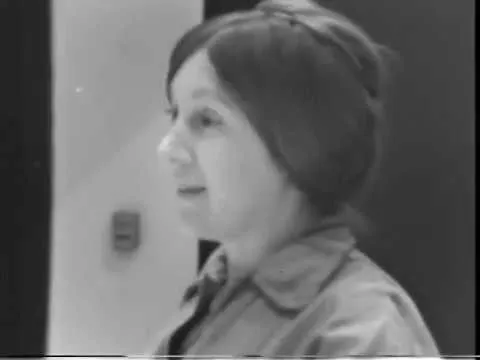
In my articles I often talked about the systemic view of the world, that is, the reality I perceive. I wonder whether some of my readers have actually taken a closer look at the footnotes and the treatises on systemics. Since I have the impression that I have not yet sufficiently provided an understanding of the systemic approach, I am starting a new attempt here.
My motivation is to understand "reality"
Systemics understands itself as an interdisciplinary approach and reference, from which a rapprochement of an understanding of the world can take place.
Systemics offers a worldview which is neither totally relying on certainty (science) nor on uncertainty (trust). Instead, it acknowledges an integration of both, the testable and not testable into the perception of humans. It says: There is a matrix in which everything is embedded. In this bed, separation does not make sense.
Consider the systemic view in your discipline
I want all of you to expand your discipline (actually your whole life) through the approach and methodology of the systemic view of life. You certainly know that your work has an influence on other peoples lives and professions and our environment and vice versa.
What I see in the world I live in - supported by media forces - are two streams/tendencies:
- The habit of seeing the world only through the lens of scientific criteria neglects other views which follow not this criteria and must therefore be dismissed.
- The habit of seeing the world only through the lens of a higher authority neglects other views which follow not this belief and must therefore be dismissed.
In order to get a full picture of my world, I need both: science in its original sense and trust. One is testable, measurable, evaluable and the other is not. One is quantity, the other quality. Quality can be approached and mapped, understood, but never really grasped. A remnant of uncertainty remains. There is no definitive proof of what quality is as little as there is no definitive proof of scientific knowledge as it exists in time and space and is constantly changing and throwing old findings overboard.
To stay with uncertainty and take trust where is no proof is an approach which I want you to chew on. It divides people otherwise in scientists and non-scientists and adds onto the conflicts between humans, which claim to possess the truth when, in fact, both views are justified. In my world, the quantifying approach on life tries to outweigh the quality of trust.
Objectivity is impossible
For me, "objectivity" serves as a safe room where one doesn't want to be questioned on an emotional level. But objectivity has long since been called into question by science itself and there is doubt as to whether a human being can ever be objective because we have discovered a great deal more about ourselves in the meantime.
The "recognition of recognition" obliges to "constant vigilance towards the temptation of certainty". With which the world we see is not the world, but a world that we bring forth with others".
source: Wikipedia translation from German to English
Take time to digest that statement.
“Thirty years ago, we used to ask: Can a computer simulate all processes of logic? The answer was yes, but the question was surely wrong. We should have asked: Can logic simulate all sequences of cause and effect? And the answer would have been no.”
― Gregory Bateson, Mind and Nature quotes
That certainly (LOL) resonated with me! I can see this temptation almost everywhere and have it myself. It seems to contradict the scientific approach, in which an investigated object (theory) is generally considered to be proven when it has passed the scientific criteria. Tendencies, probabilities, and averages can be anticipated but certainty?
A true scientist behaves careful with the term "certainty" and does right in doing so.
According to systemics the world as I try it to experience is a living self-regulating system. In this view, the whole planet Earth is a living system which accommodates numerous other living systems that have emerged from it. Referring to Charles Darwin's theory of evolution, all living organisms that exist today have the same ancestors. Life, as we know it, brings new life out of itself, is therefore reproductive. In addition, it is highly complex and eludes simple explanations.
Feedback loops
Since all living systems depend on each other and draw feedback loops, it is possible to deduce their interdependence and at the same time exclude a linear causality. The simple assumption that A causes B is a reductive observation and is not sufficient.

Feedback occurs in many technical, biological, geological, economic and social systems. Depending on the type and direction of the traced variable, the self-reinforcement of the process caused by the system or its attenuation or self-limitation occurs. In the first case, it is referred to as positive feedback or co-feedback, in the latter case it is referred to as negative feedback or back-coupling (added: in the sense of "pushing against").
German source: Wikipedia translation
English source: Wikipedia
Scientists have got to the bottom of this reality and, as they say, independently of each other. Humberto Maturana and Francisco Varela are the ones I refer to in this article as well as those who talk about Maturana's work, like Fritjof Capra and Peter Senge. Also Gregory Bateson, who influenced Maturana and Valera. A woman should not be left out: Donella Meadows, to which I come later. Their findings don't surprise me, because other people before their time also knew about the fact that living systems regulate themselves, especially people who experienced themselves as part of nature, like the indigenous peoples. From what I so far studied the Buddhists as well came to similar conclusions.
According to the latest scientific findings, for example, human perception and consciousness is not a thing but a cognitive process. With emphasis on "process".
„Living systems are cognitive systems, and living as a process is a process of cognition. This statement is valid for all organisms, with or without a nervous system“
This is better known as the "Santiago theory" of their founders Maturana and Valera:
The Santiago theory of cognition is a direct theoretical consequence of the theory of autopoiesis. Cognition is considered as the ability of adaptation in a certain environment. That definition is not as strange as it seems at first glance: for example, one is considered to have a good knowledge of Mathematics if he can understand and subsequently solve a Mathematical problem. That is, one can recognize the mathematical entities, their interrelations and the procedures used to view other aspects of the relevant phenomena; all these, are the domain of Mathematics. And one with knowledge of that domain, is one adapted to that domain, for he can tweak the problems, the entities and the procedures within the certain domain.
As I have already suggested it has to be differentiated that the inanimate (abstract) can be measured and weighted, whereas the living has no quantifiable properties. The former is measurability, the latter is quality and must therefore be mapped instead of measured.
Watch this youtube videos from where I extracted some of my contents:
- Earth Talk: Fritjof Capra - The Systems View of Life
- Systems Thinking in a Digital World - Peter Senge
What does mapping mean in this context?
The behaviour of person X affects person Y, and the reaction of person Y to person X's behaviour will then affect person X's behaviour, which in turn will affect person Y, and so on.
For example, to view the quality of communication, I have to visualize its impact by mapping.
Since communication between people is done (not exclusively, because all living systems communicate with each other) I take the communication of two people. In order to achieve understanding at all, I need a framework in which to embed this.
A child insults another child in the schoolyard. This causes hurt feelings. Because it hurts, there is a fight, which leads to further insults and injuries, which stirs up the fight again. This form of a circular loop describes a problematic communication.
What this simple mapping does not do is to say that one child is guilty and the other is innocent. Rather, it describes a phenomenon that we as human beings understand intuitively. First of all, it is merely a point of reference without any evaluation.
Similarly, one could now choose a form of communication that is not offensive and we would end up with a feedback loop that describes the phenomenon of another, more preferential regulation.
Another picture gives Donella Meadows, an American scientist and environmentalist. Very educative is this film from Dartmouth College where she involves economy, politics and health and communication now must be seen as one aspect of the greater matrix:
In this lecture, Donella Meadows takes on a more philosophical concept. How can we bring ourselves to be aware of the assumptions we make as systems thinkers? She asserts that models are a set of assumptions. Donella Meadows defines some of these system dynamics assumptions (such as causal relationships and feedback loops) in this video:
Meadows chose, among others, an example from the healthcare sector and one from industry, the discovery and extraction of mineral resources. Her comparison of linear correlations with regard to political decisions was particularly fitting. As politicians speak generally in terms of linear causalities.
Politics and economy are not my specialties. So I prefer talking about "communication" which takes place in every realm of human interactions.
The foulness of linear causality was exactly the reason why I, as a child, didn't believe my mother when she told me that if I do lead a sinful life God will not let me into heavens. As I was not able to communicate that this statement seemed to me way to simple I felt a deep dissatisfaction with her notion and shut up. If she would have left God out of the equation it wouldn't have caused me all the headaches. We had more than once this miscommunication. Much better was my observations and my being embedded in the communities activities to really learn what she meant in practical daily life.
Communication between people is highly complex
What reality is for one, by no means is reality for the other. What you and I do indeed if we want to convince others of our own perception of reality, is to make them obey (I found that a telling statement from Peter Senges in the above video).
The reason for this strenuous form of human interaction is seen, among other things, in the fact that we lack an understanding of the systemic viewpoint and therefore we are stuck in a difficult feedback loop. It is said that the mechanistic observation of organisms came into being by the interpretation of Descartes - the separation of mind and matter - that led to misconceptions of human reality.
Consciousness is not a thing, but a cognitive process
The problem of us humans is that we are not accustomed to thinking in cycles. We understand "nature" as separate from us and can no longer learn in it because this is not possible in our modern lives. The fact that we even have a word for "nature" is already an indicator of separation. We isolated ourselves from the circular knowledge and turned nature into an object. Since the time of the Reconnaissance a few hundred years ago, we have been pursuing this view and as a result, we are facing global crises. We regularly create damaging feedback loops.
An example from my recent experience
I criticized the distribution of film material, which I identified as "best" for a negative feedback loop. The films show people who are seen as stupid, brutal and morally reprehensible. When this reaches a multitude of people who also think that and spread them, this system regulates itself through continuous damaging feedbacks but neglects to break the loop and transforms it into a benevolent one. The effect is not only reduced to those who also understand the stupidity and reprehensibility of others as a fact, but it reaches out to those who were meant as well and feel attacked by it, i. e. produce more film material. This material is from my point of view mistaken as "objective information".
One could say that malevolent censorship leads to as insults perceived messages which then again lead to even more message-producing which again is being perceived as stupid which then again has to be rigidly censored ... and so on and so forth. To stop that loop self-censorship and non-violent communication should take place to create a benevolent circle.
Otherwise, a negative loop gives the impression that people are per se stupid and unfeeling, and as a result, everyone is looking for a solution to stop or denigrate intolerable people. Hard to get away from that when I can't view systems.
My criticism set in at that point where I sensed that another negative loop was about to be created or already took on speed and I did not want it to unfold it with furthermore content in this art. I saw there the danger of adding up to the "war of cultures". I will come back later to a view on humans which disturbed me deeply and made me as a consequence writing this article.
As the systemic view is nothing all people can explain and take on, a good recommendation would be to take in the probability that this worldview could so far be the best offer.
I am still trying to understand all the attached theories and methods. It's indeed huge.
But why is it the best offer?
- it serves all the good stuff of the most reasonable, heartfelt and non-violent form of communication I ever encountered.
- It is based on ethics
- it contains a captivating logic
- it is future-proof and supportive of consensus
- it is creative instead of destructive
- it gives the most impactful perspectives and insights
- it is able to unite hostile groups of people
When this text leads you to try it out yourself either within your profession or within your personal interactions this would be great. I do not ask you to believe me or the people I mention here, but to check from your life experiences in experimenting with this approach. So, as a requirement, I ask you to watch the videos I present here in full length, chew on them, let them take you to reflect and contemplate. This steals a lot from your precious time.
I don't want to feel all alone with my systemic view on life and get in closer touch to those of you who like to debate or discuss with me.
What I tried to do is to give you a picture of systemics and my chosen examples themselves cannot show the complexity and all the attachments of cyclic or circular thinking. However, there may have been a hint of how to understand systemics or approach it.
In his book "Biology of cognition" Maturana ends with "No scientific work should be done without recognizing its ethical implications." He then points out what deserves special attention. You'll find the link to the whole text down below.
The last words I leave for Donella H. Meadows, quoting:
“No one can define or measure justice, democracy, security, freedom, truth, or love. No one can define or measure any value. But if no one speaks up for them, if systems aren’t designed to produce them, if we don’t speak about them and point toward their presence or absence, they will cease to exist.”
“Purposes are deduced from behavior, not from rhetoric or stated goals.”
Thank you for reading.
Photo by Aaron Burden on Unsplash
Photo by Julian Böck on Unsplash
Literature:
HUMBERTO R. MATURANA - BIOLOGY OF COGNITION - full book: http://www.enolagaia.com/M70-80BoC.html Baum der Erkenntnis/Tree of knowledge- Wikipedia translation from German to English
Ruesch, J.; Bateson, G. (2009) [1951]. Communication: The Social Matrix of Psychiatry
Bateson, G. (1979). Mind and Nature: A Necessary Unity (Advances in Systems Theory, Complexity, and the Human Sciences)
Donella H. Meadows, Jorgen Randers and Dennis L. Meadows Limits to Growth - The 30 year Update, 2004
Francisco Varela - The Tree of Knowledge: The Biological Roots of Human Understanding
- Bateson quotes: https://www.goodreads.com/author/quotes/88125.Gregory_Bateson
- Feedback - German source: https://de.wikipedia.org/wiki/R%C3%BCckkopplung
- Feedback - English source: https://en.wikipedia.org/wiki/Feedback
- Humberto Maturana: https://en.wikipedia.org/wiki/Humberto_Maturana
- Francisco Varela: https://en.wikipedia.org/wiki/Francisco_Varela
- Fritjof Capra: https://en.wikipedia.org/wiki/Fritjof_Capra
- Peter Senge: https://en.wikipedia.org/wiki/Peter_Senge
- Donella Meadows: https://en.wikipedia.org/wiki/Donella_Meadows
- Dartmore College Video
- Gregory Bateson: https://en.wikipedia.org/wiki/Gregory_Bateson
- The Santiago theory of cognition: https://en.wikipedia.org/wiki/Santiago%27s_theory_of_cognition)
- Autopoiesis: https://de.wikipedia.org/wiki/Autopoiesis
- Youtube Video: Earth Talk / Fritjof Capra - The Systems View of Life
- Peter Senge - Systems Thinking in a Digital World
- Descartes:https://en.wikipedia.org/wiki/Ren%C3%A9_Descartes
- Quotes Meadows: https://www.goodreads.com/work/quotes/3873538-thinking-in-systems-a-primer
- Guide to the Papers of Donella H. Meadows: http://ead.dartmouth.edu/html/ms1152_fullguide.html
